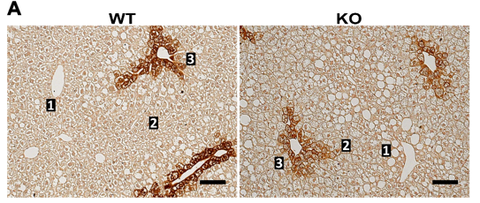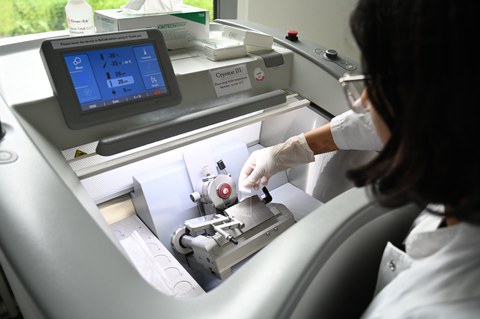Research
Our research group is dedicated to systems medicine research of the liver with a focus on molecular mechanisms of the development and early detection of hepatocellular carcinoma (HCC) and other liver-associated diseases.

Zonated steatosis in Tm6sf2-/- mice
A central research focus is on the application and further development of methods such as single-cell and single-nucleus sequencing, spatial transcriptomics and DNA methylation analyses to characterize molecular changes at different stages of liver disease. The team also conducts extensive genome-wide association studies (GWAS) in cooperation with national and international clinics to identify genetic risk factors for complex diseases such as gallstone disease, alcoholic liver cirrhosis, colorectal carcinoma, metabolic-associated liver disease (MASLD), inflammatory bowel disease and sarcoidosis. Particularly noteworthy is the research into epigenetic changes in the context of liver physiology and regeneration, whereby DNA methylation patterns are used to understand disease progression such as in MASLD or obesity-induced liver changes. In addition, genetically modified models are used to functionally analyze the role of genetic risk variants - as identified by GWAS - and to develop new diagnostic and therapeutic targets. The focus is on AI-supported analyses of tissue sections and the development of personalized biomarkers as well as the translation of these findings into clinically relevant applications.

